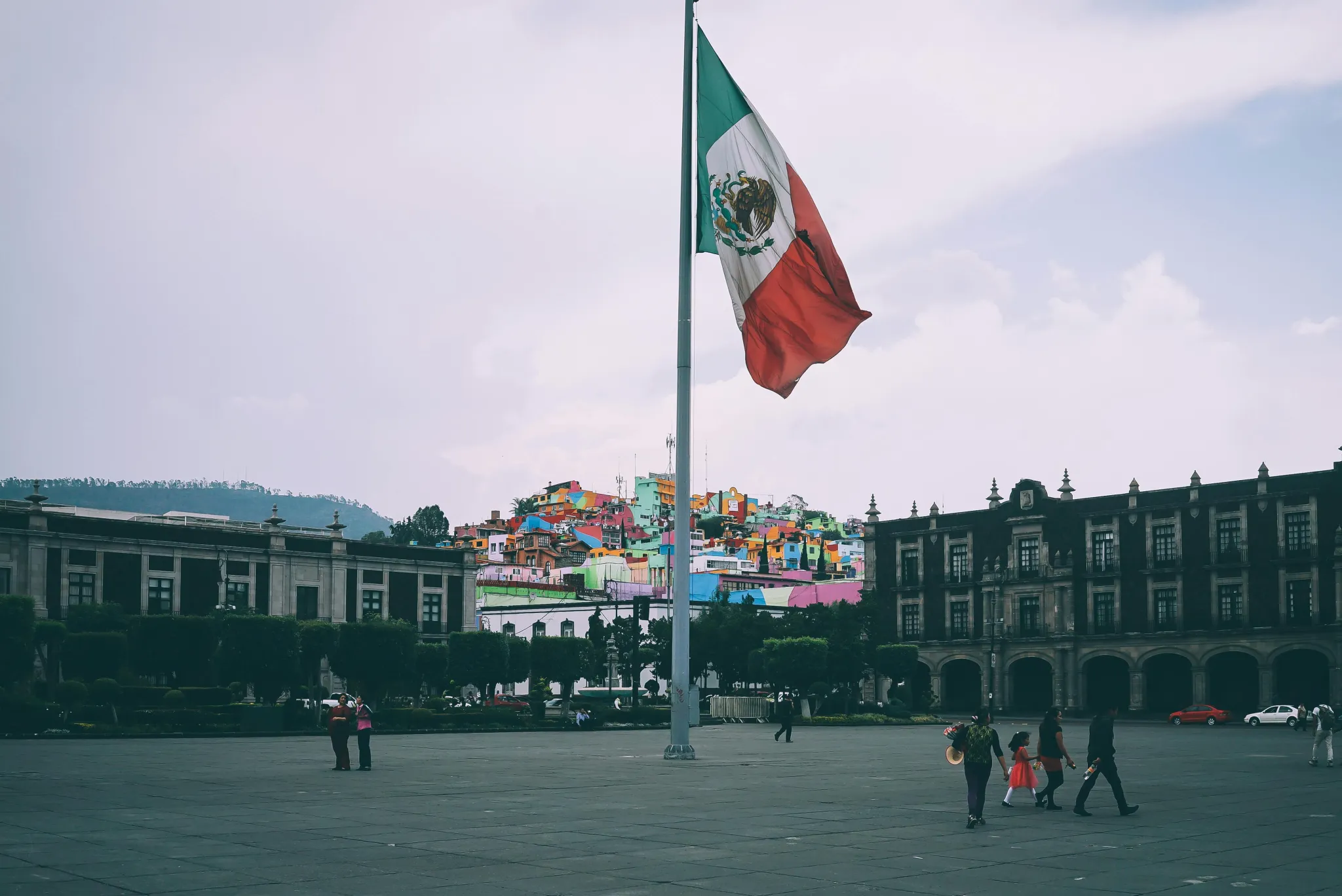Explainer: Mexico’s largest elections yet

The upcoming elections in Mexico are poised to be the largest in the country’s history as representatives for 20,367 public offices will be chosen. Since the country’s first alternation in the party holding the presidency in 2000, Mexico has experienced considerable advances towards consolidating its democracy. Yet this election will be a key test of the electoral authorities’ resilience in a challenging environment.
What will Mexicans be voting for on 2 June?
At the national level, Mexicans will go to the polls to choose their next president and the entire membership of Congress (Senate and Chamber of Deputies). Nine federal entities, including Mexico City, will renew their leaderships, and across all 31 states and Mexico City voters will choose local lawmakers, mayors and council members. In all, Mexicans will decide on representatives across 629 federal and 19,738 local positions.
Who are the presidential candidates?
Credit: Rodrigo Jardon @ Wikimedia/Creative Commons.
Presidential re-election is not allowed in Mexico. The front-runner, and protégé of President Andrés Manuel López Obrador, Claudia Sheinbaum Pardo, is running for the left and center-left ruling coalition “Seguimos Haciendo Historia”, made up of the Morena party, Labour party (Partido del Trabajo, PT) and the Ecological Green Party of Mexico (Partido Verde Ecologista de México, PVEM). Sheinbaum was mayor of Mexico City from 2018 until last year. Among the priorities of her platform are a commitment to anti-corruption efforts and austerity.
Credit: Santiago Alba Ibarra @ Creative Commons.
Xóchitl Gálvez Ruiz, who polls in second place, is running for “Fuerza y Corazón por México”, a coalition including the center-right National Action Party (Partido Acción Nacional, PAN), the Institutional Revolutionary Party (Partido Revolucionario Institucional, PRI), and the center-left Democratic Revolution Party (Partido de la Revolución Democrática, PRD). Gálvez was head of a municipal government in Mexico City and had been Senator since 2018 (until her leave of absence to contend for the presidency). She has pledged to address insecurity and clamp down on organized crime, strengthen local police, and reduce the military’s involvement in civilian security tasks.
Credit: EneasMx @ Wikimedia/Creative Commons.
Finally, Jorge Álvarez Máynez, who is running for the Citizens’ Movement party (Movimiento Ciudadano, MC), has been a representative in Congress’s Chamber of Deputies between 2015-2018, and then between 2021 -2024. Although polling in a distant third place, Álvarez Máynez has sought the support of young voters by trying to distance himself from establishment politics. He proposes a new strategy to combat organized crime, the promotion of clean energy and a gradual decriminalization of certain drugs.
What stands out in this election?
Measures to improve political representation have enabled the introduction of electoral affirmative actions for underrepresented groups, including Indigenous persons, Afromexicans, persons with disabilities, LGBTQIA+ people, and migrants. The election also stands out due to other measures to enhance political participation.
The gender dimension
In all likelihood, Mexico will see its first woman president elected in 2024, a considerable advance given the high levels of sexism, misogyny and femicide, and considering that progress for women’s political representation in the country was hard-fought and decades in the making.
In 2019, a game-changing constitutional protection for gender parity as a permanent fixture in politics and all branches of government was approved, establishing “parity in everything”. This paved the way for the designation of the National Electoral Institute’s (Instituto Nacional Electoral, INE) first woman president, and decisions by INE and the Federal Judiciary’s Electoral Tribunal that affirmed the duty of political parties to present at least five candidacies of women to the eight gubernatorial races and the race for Mexico City mayor taking place this year.
However, challenges remain as gender-based political violence is also common in the Mexican context, despite a robust legislation that enables electoral authorities to monitor and sanction it. INE keeps a National Registry of People Sanctioned for Political Violence Against Women and has been developing innovative tools and actions with digital platforms to prevent and sanction gender-based digital violence. Recently, some lawmakers have pushed for reforms to establish gender-based political violence as new cause of nullity of an electoral process.
Special voting arrangements
The 2024 elections will also see new special voting arrangements. Approximately 258,000 Mexicans will be able to vote from abroad, gaining access to e-voting and in-person voting in certain consulates in addition to the existing process for postal voting. Inclusion has been enhanced through arrangements to facilitate access of persons with disabilities to voter IDs via home-visits made by electoral authority representatives, and through access to early voting. Finally, in a historic milestone, persons in pre-trial detention will be able to vote for President. This constitutes a significant advance for the enjoyment of political rights by persons deprived of their liberty in preventative detention, affirming the right to presumption of innocence.
What about the broader context?
Surveys show that insecurity and violence are the main concerns of Mexicans in this election year, with other issues such as poverty, inequality and unemployment among the main issues citizens will consider when going to the polls. Pervasive levels of violence continue to be a challenging attribute for these elections. At least 30 candidates have been killed between September 2023 and mid-May 2024, in addition to dozens of other political killings of aspiring candidates, aides, and current and former politicians. In May alone, 15 people were killed in violent attacks in the southern state of Chiapas, including the mayoral candidate to the municipality of La Concordia. The state’s electoral authority has revealed that 500 candidates have decided to withdraw, the majority of whom were women. This election will also prove key to the resilience of INE, after several controversial attempts in the last years to change its structure and powers through constitutional and legal reforms.
What to watch in the post-elections period?
Regardless of who wins the presidential race, the results of the congressional race will be one of the most important aspects of this process. The balance of power in Congress will determine whether or not Morena will be able to advance the constitutional and legal amendments for which President López Obrador was unable to get congressional approval in the current Congress. These included changes to INE’s structure and functioning and a reform to the judiciary which would see Supreme Court justices and other judges elected by popular vote.
The role of the Federal Judiciary’s Electoral Tribunal and of local electoral tribunals will also be crucial. Any challenges to the credibility of elections in the face of the severe security situation will be closely watched, particularly in local races in the states that are more affected by violence. Further, in races with narrow differences between first and second place, tribunals will have the demanding task of determining whether any infringement of electoral norms that aim to preserve a level playing field had an impact on results.
Disclaimer: Opinions expressed in this commentary are those of the authors and do not necessarily represent the institutional position of International IDEA, its Board of Advisers or its Council of Member States.




